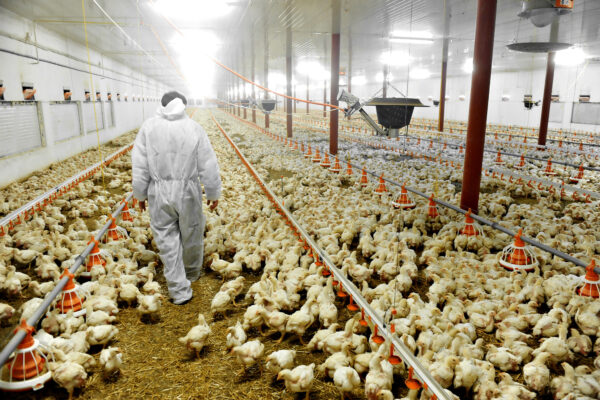A court has determined that what has come to be known as Ag Gag 2.0 is unconstitutional, a position free speech advocates have taken ever since 2019 when the law was first signed by Gov. Reynolds.
Tuesday the U.S. District Court for the Southern District of Iowa found that the law criminalizing undercover investigations at factory farms, slaughterhouses, and puppy mills violates the First Amendment.
This important decision finds that Iowa's Ag Gag 2.0 law discriminates based on the viewpoint of the speaker. Speakers critical of big agriculture are singled out for punishment, while those who would promote or praise it are protected. An especially grievous harm to our democracy occurs when the government uses the power of criminal laws to target unpopular speech to protect those with power—which is exactly what this law is about. The Ag Gag 2.0 law aims to silence critics of worker rights abuses, animal cruelty, unsafe food safety practices, and environmental hazards in agricultural facilities.
This isn't the first time our government tried to silence the voices of Iowans. This law was very similar to an earlier Ag Gag law passed in 2012 by the Iowa Legislature—Ag Gag 1.0—which also criminalized lawful investigations and protected speech at factory farms, slaughterhouses, and puppy mills. Ag Gag 1.0 was struck down by the a federal court in 2019. Other federal courts have similarly struck down Ag Gag laws in Idaho and Utah as unconstitutional.
The plaintiffs in the lawsuit are the Animal Legal Defense Fund, People for the Ethical Treatment of Animals (PETA), the Center for Food Safety, Iowa Citizens for Community Improvement, and Bailing Out Benji. The plaintiffs are represented by the ACLU of Iowa, Public Justice, the Law Office of Matthew Strugar, Justin Marceau and Alan Chen of the University of Denver Sturm College of Law, and in-house counsel for the plaintiff organizations.

